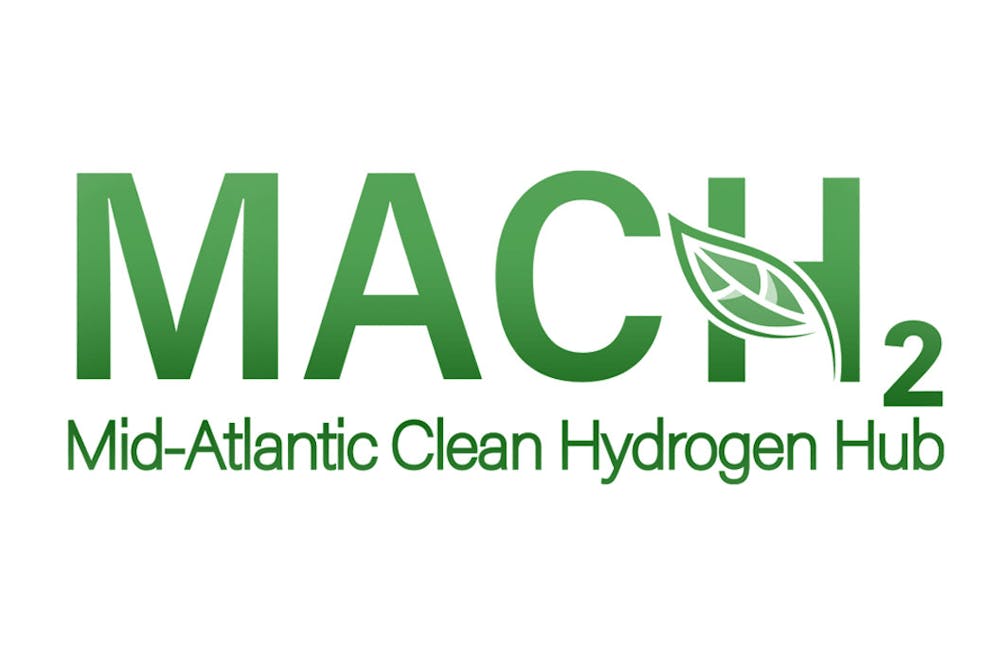Penn was recently named an education partner for the Mid-Atlantic Clean Hydrogen Hub, an initiative that will receive up to $750 million in funding from the United States Department of Energy.
MACH2 will create a network of hydrogen producers, consumers, and infrastructure in the Delaware, Pennsylvania, and New Jersey regions. Faculty members of the Vagelos Institute for Energy Science and Technology facilitated the partnership to support workforce development efforts for the hub.
The initiative is part of the DOE’s Regional Clean Hydrogen Hubs Program, which aims to accelerate the use of hydrogen as a clean energy source. President Joe Biden announced MACH2 in a visit to Philadelphia on Oct. 13. Speaking at the Tioga Marine Terminal, Biden said that the hydrogen projects would be “transformational” in creating jobs and moving the country towards the goal of net-zero carbon emissions by 2050.
In total, the program is providing up to $7 billion in grants to fund seven hydrogen hubs across the country. Other hubs are located in California, Texas, Appalachia, the Pacific Northwest, the Dakotas, and the Midwest.
Hydrogen has significant potential as a fuel source to power commercial vehicles, ships, and planes without causing environmental harm, according to the MACH2 website. The hub will leverage existing resources to advance education, infrastructure, and outreach that supplements the growth of hydrogen usage.
Professor in Materials Science and Engineering Eric Detsi will lead Penn’s partnership with Drexel. Thomas Mallouk, Vagelos Professor in Energy Research and chemistry department chair, and John Vohs, Carl V. S. Patterson Professor in Chemical and Biomolecular Engineering, will also be involved in the project.
“The U.S. will need skilled employees who can safely handle and maintain hydrogen and related technologies,” Detsi said in a School of Arts and Sciences news release. “Penn and the other partners involved will play a key role in training this hydrogen workforce and its leaders.”
Penn will add a new hydrogen concentration to three engineering degrees: chemical and biomolecular engineering, mechanical engineering and applied mechanics, and materials science and engineering.
RELATED:
Chemistry Professor Thomas Mallouk awarded $5 million for renewable energy research
Penn hosts Energy Week to generate awareness about scholarship, equity in energy
Dawn Bonnell, senior vice provost for research, described how Penn will use its resources to support MACH2.
“With partners in the hub, we will develop groundbreaking research that generates technologies and implementation that can transform the energy base of the region,” Bonnell said in the news release. “We will help develop educational programs that support the new workforce. The opportunity for academic institutions to collaborate with industry partners and the community is exciting and the best path to success.”









